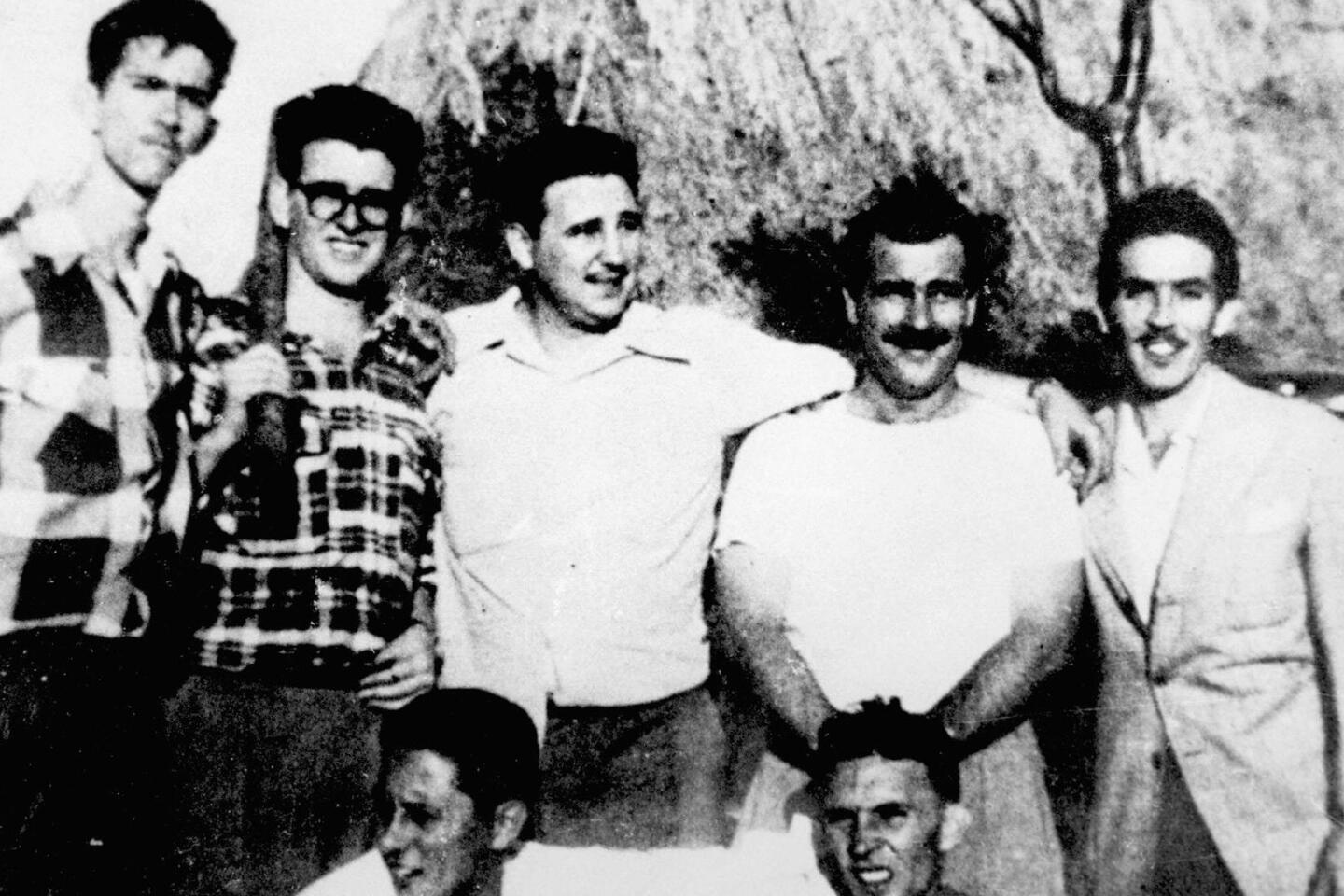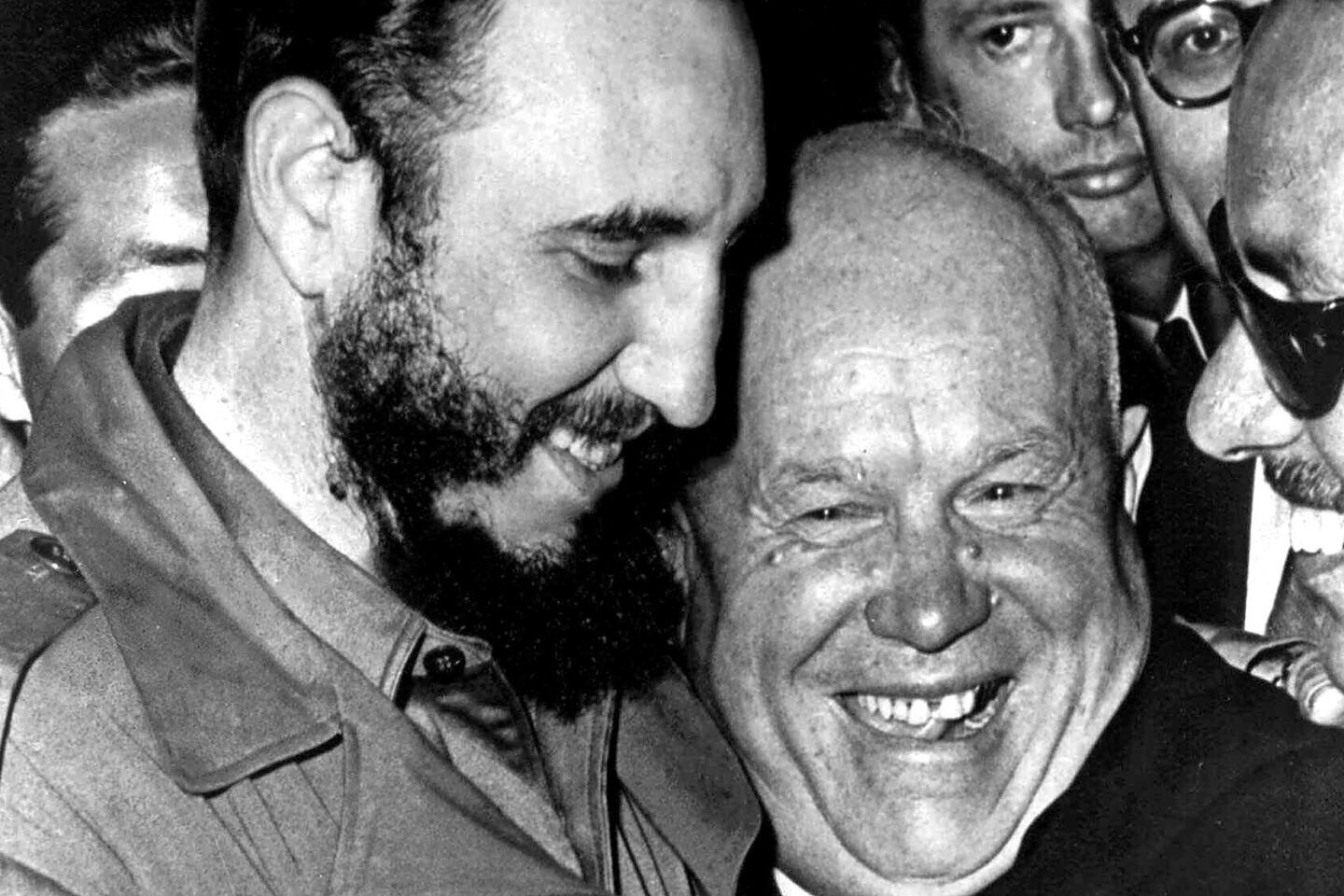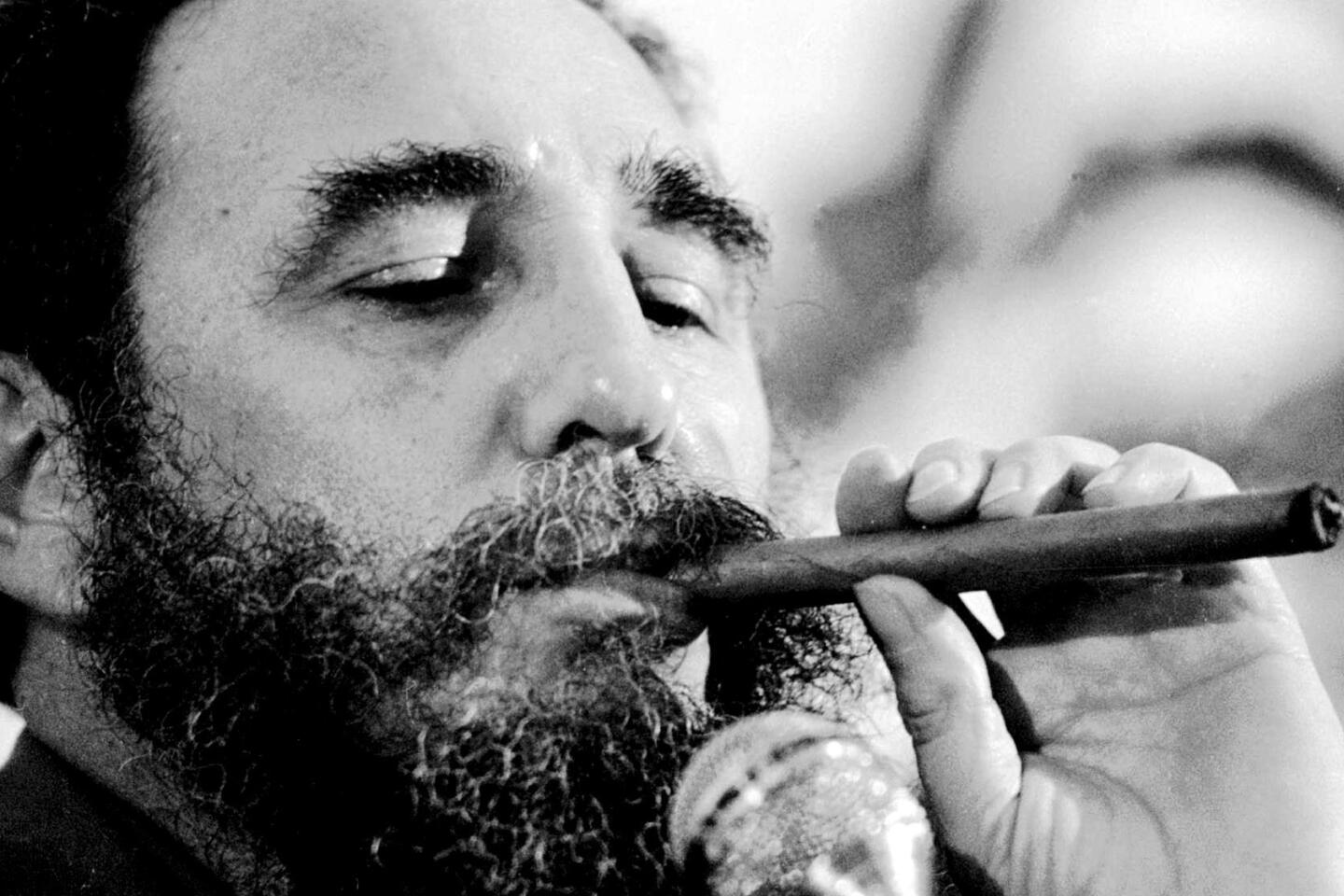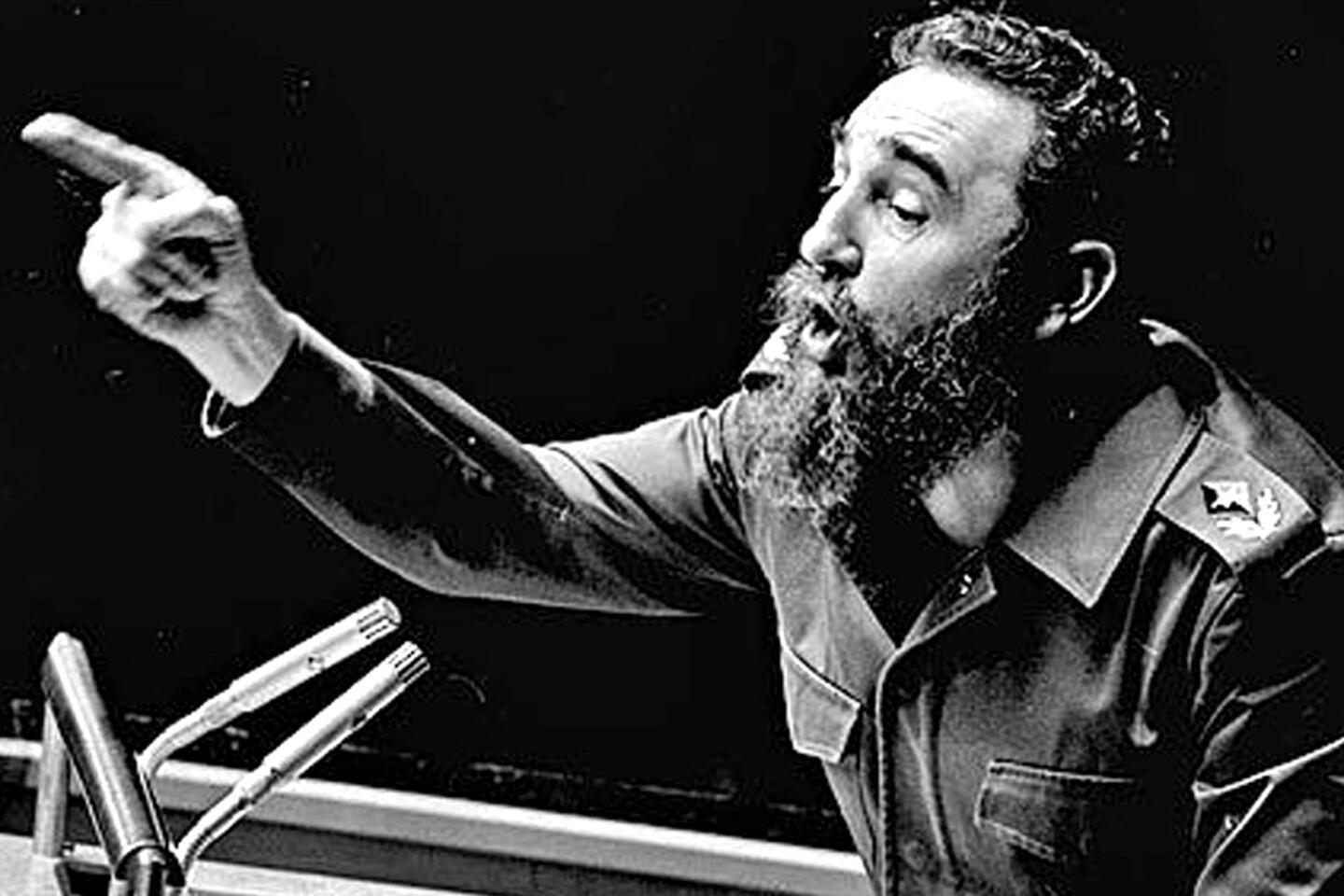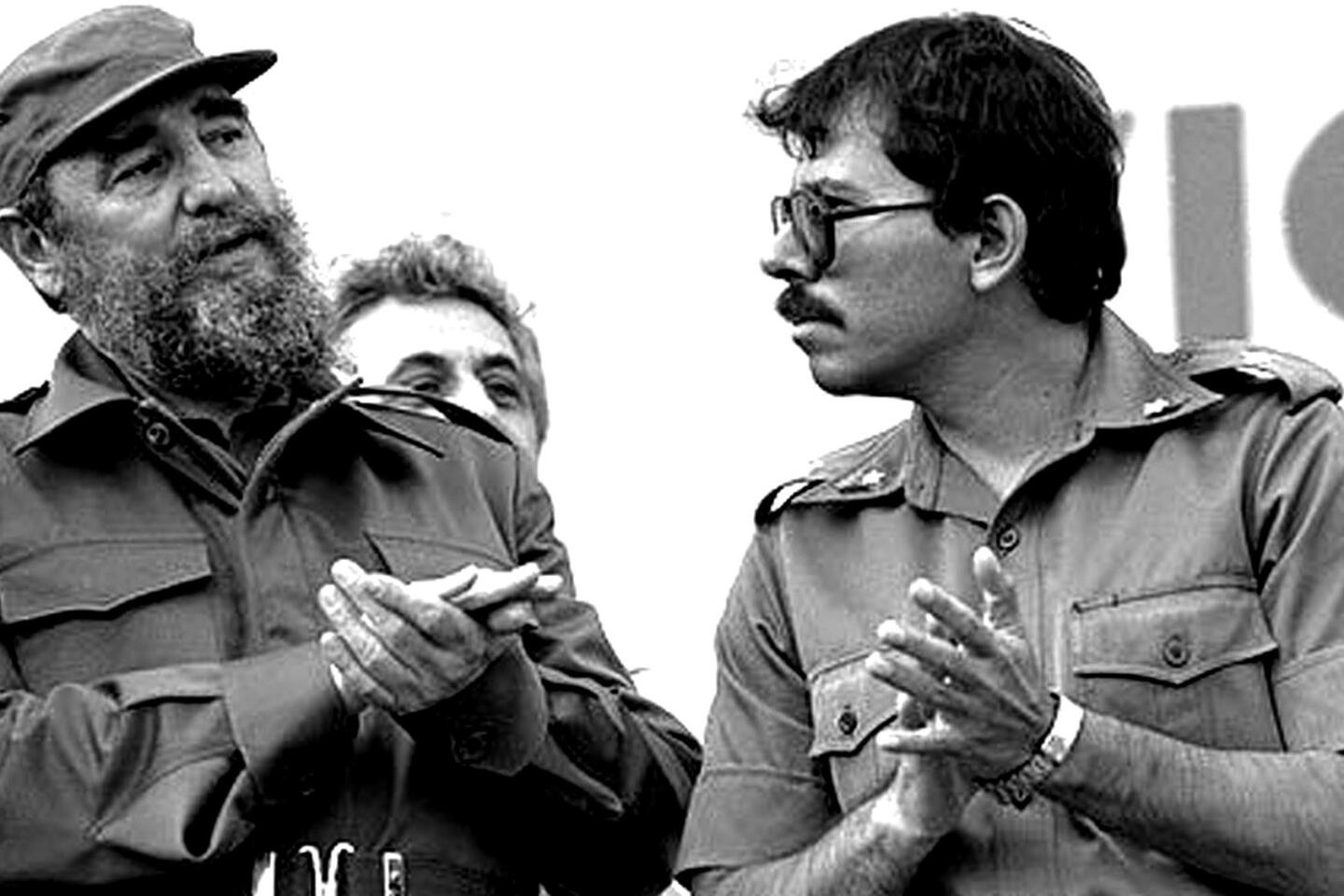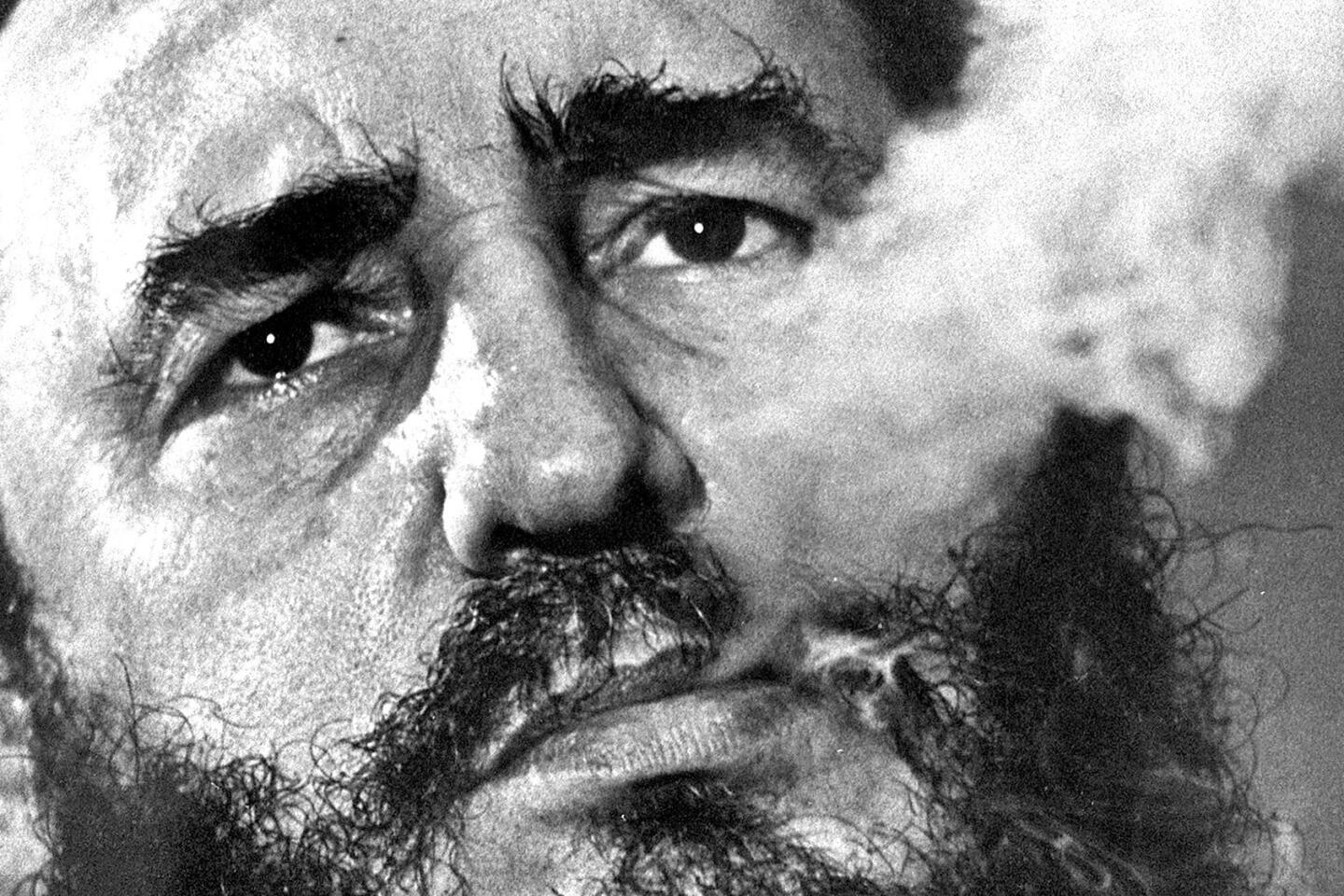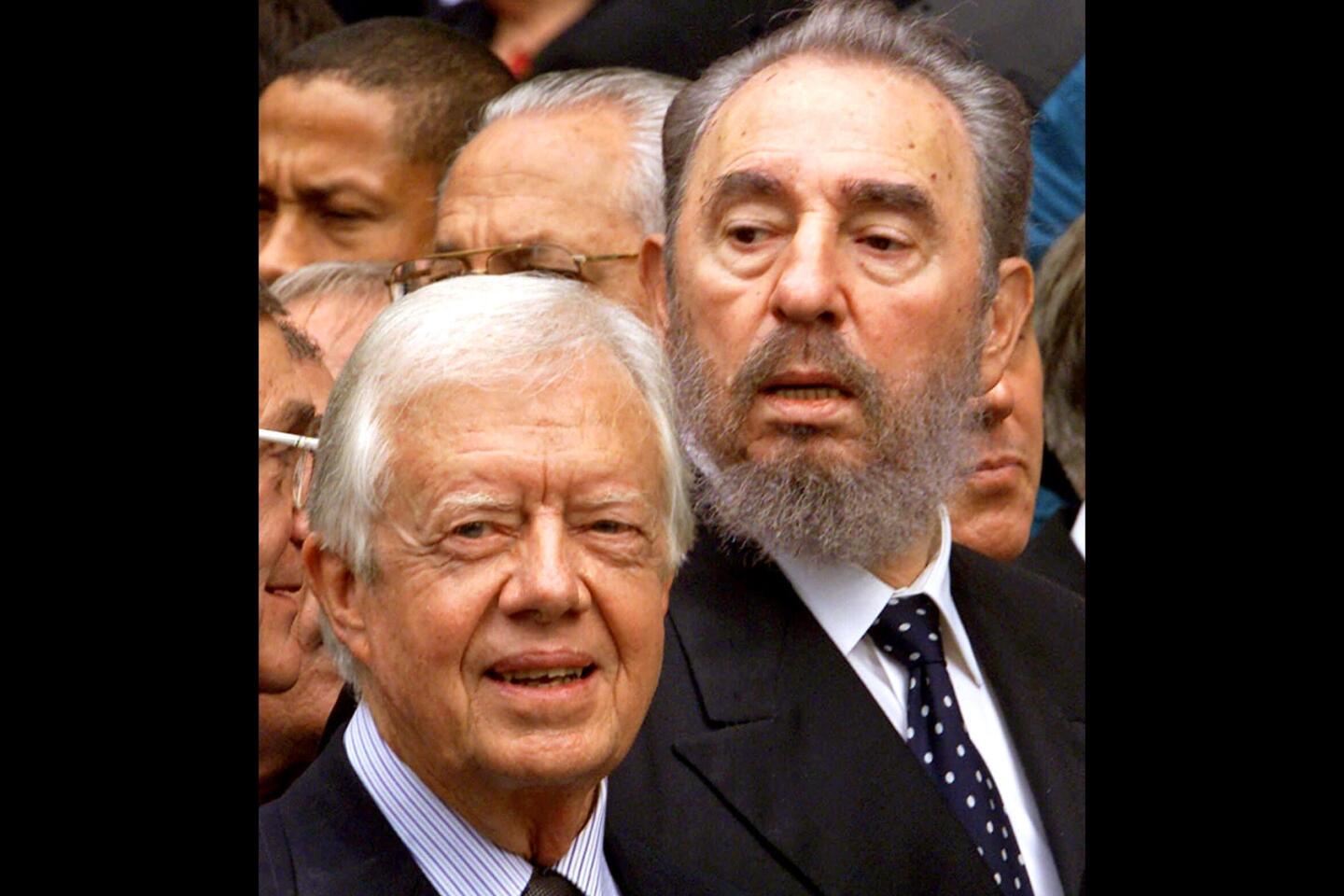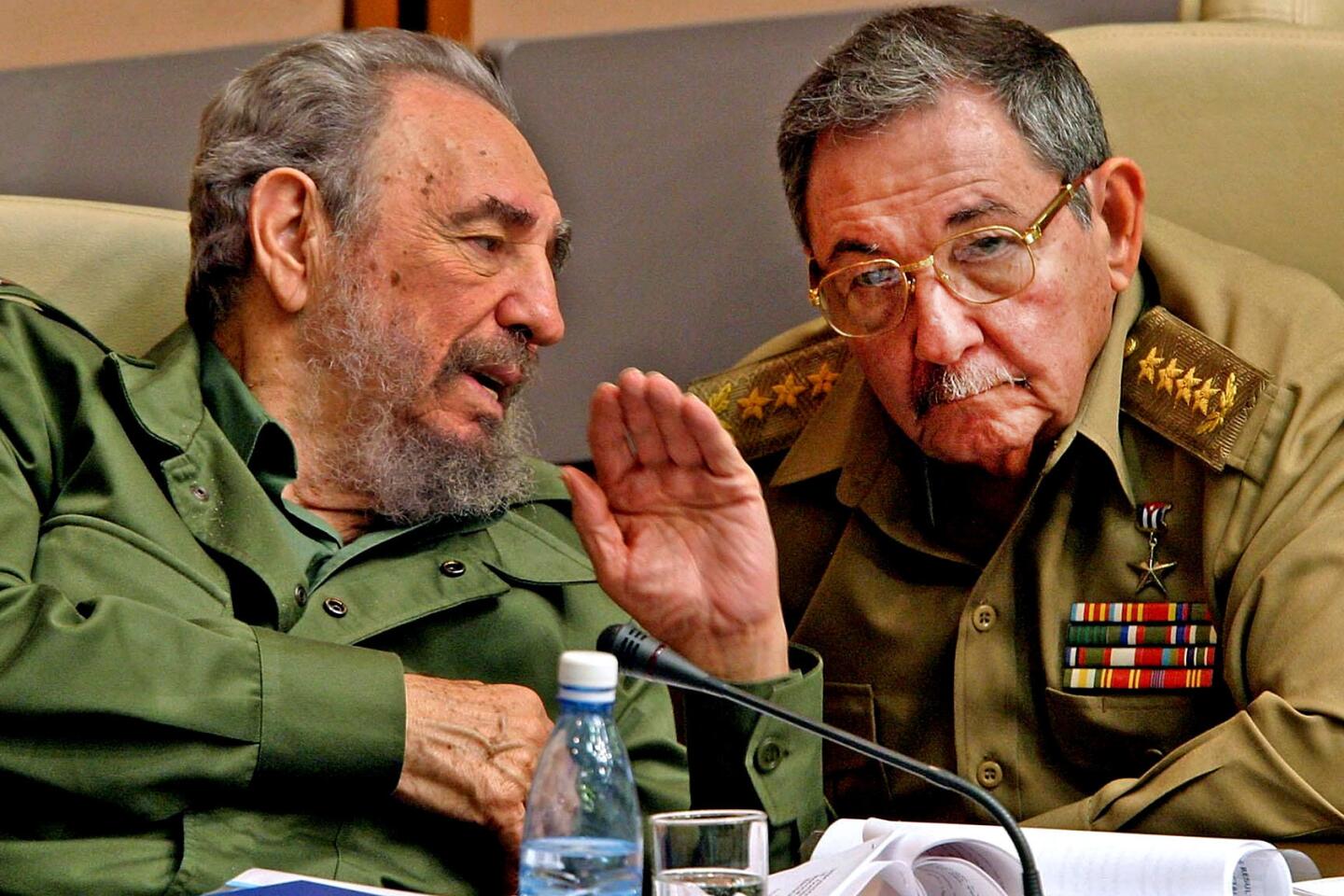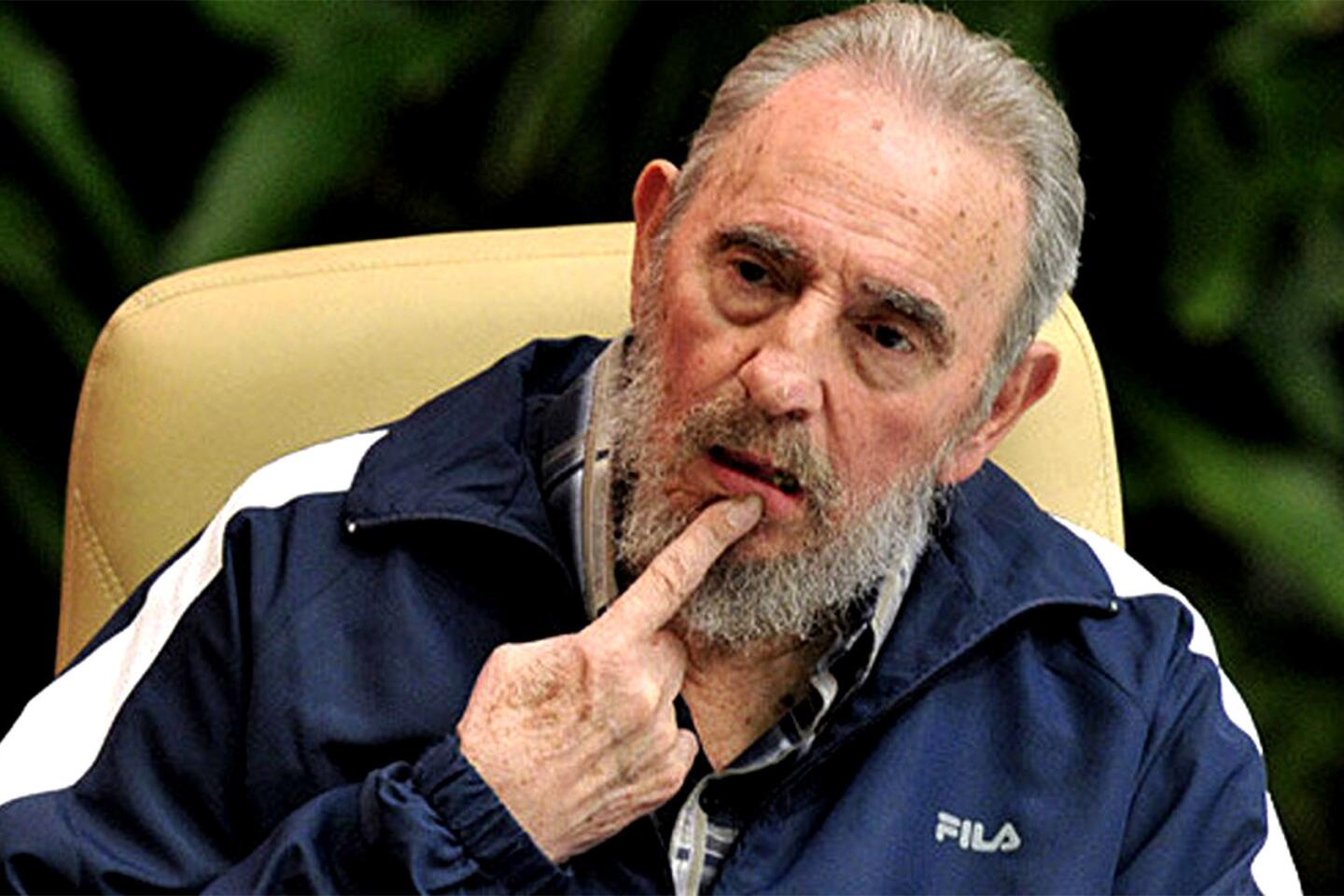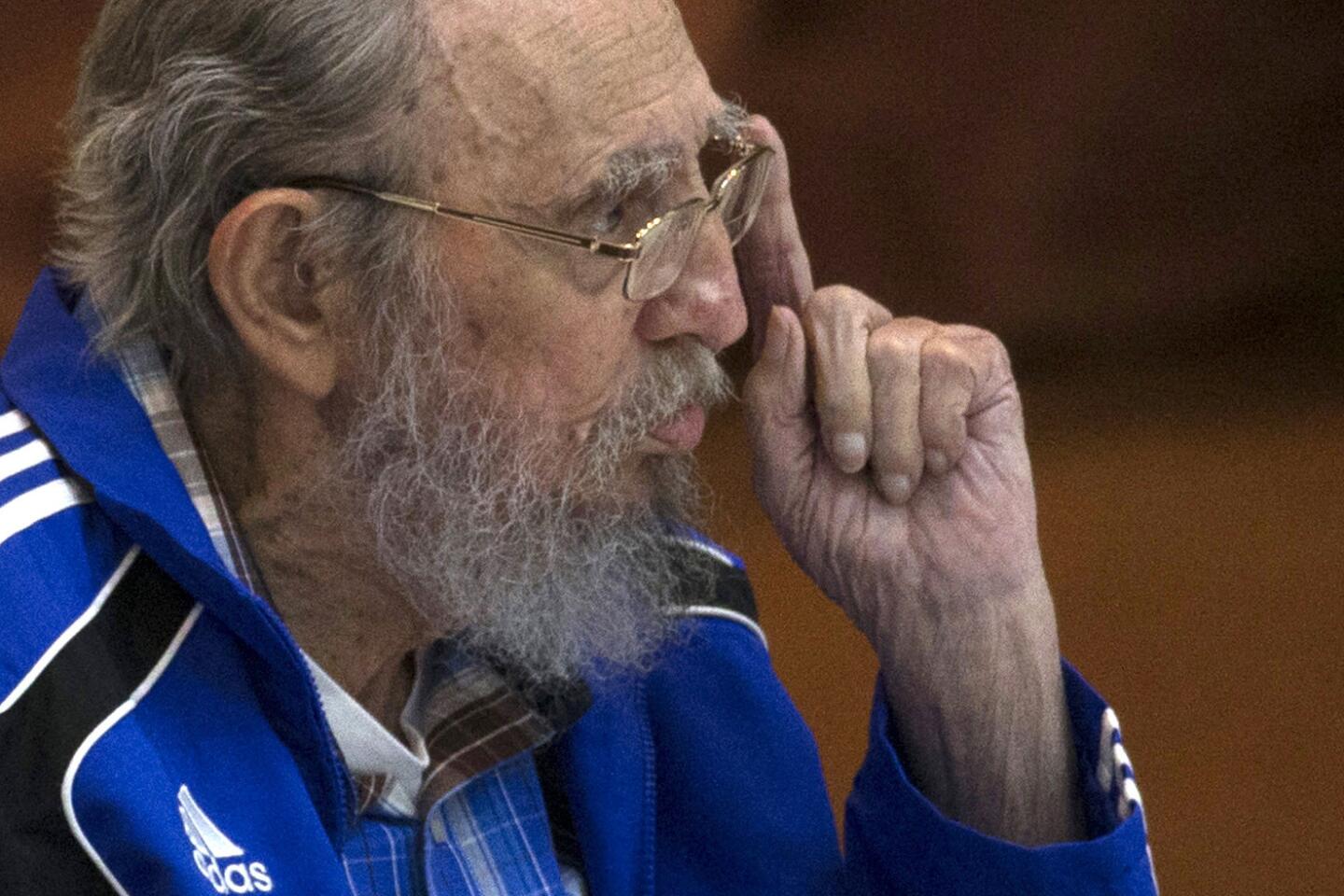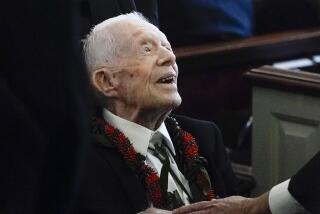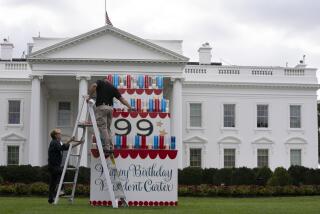Fidel Castro marks his 90th birthday with a letter, thanking Cuba and criticizing Obama
- Share via
Reporting from Mexico City — After months of steady progress in normalizing relations between the United States and Cuba, Fidel Castro used the occasion of his 90th birthday to lash out once more against President Obama.
In a long letter published Saturday by state media, the former Cuban leader thanked supporters for their good wishes, reminisced about his boyhood and took on Obama, whom he also criticized after the American’s historic visit to the communist island nation in March.
This time, the target of Castro’s ire was a speech Obama delivered in May to the people of Japan, where he became the first sitting American president to visit Hiroshima, site of the atomic bombing 71 years ago. Obama reflected on the obligations of humankind to avoid war and resolve conflict, but did not apologize for the bombing of Hiroshima and Nagasaki.
“I believe that the United States’ president’s speech lacked stature when he visited Japan,” Castro wrote, “and it lacked an apology for the killing of hundreds of thousands of people in Hiroshima, in spite of the fact that they knew the effects of the bomb. The attack on Nagasaki was equally criminal, a city that the powerful chose at random. It’s for that reason that I must hammer on the necessity of preserving peace, and that no power has the right to kill millions of human beings.”
Castro stepped down as president eight years ago, and his younger brother Raul Castro succeeded him. The elder Castro has taken a back seat in Cuban affairs as Raul Castro has opened the U.S. Embassy in Havana, welcomed Obama on his visit and even opened up tourism. Fidel Castro’s remarks will do little to stop that progress, if the tepid reaction to his past criticism of Obama is any guide.
Before the end of the month, commercial flights to and from the U.S. will begin, and with them a boost in tourism. As the revolutionary leader watches these reforms unfold, such missives attempt to remind Cubans of his legacy and ideals, even as they reveal his slackened grip on the country’s future.
The choice of criticizing Obama over his Japan remarks was eccentric and out of touch, according to Ted Henken, an associate professor of sociology at Baruch College of the City University of New York, who studies Cuba. “His argument is correct, but his tone and strategic focus on the past is at odds with his brother and the general orientation of the people,” he said.
“Instead of being a voice that represents Cuba, his voice is increasingly one that shows him at odds with the reformist tendencies within the government and the vast majority of Cubans and Cuban youth,” Henken added. “If not an embarrassment to a lot of Cubans, it’s certainly something that’s chaining the country to the past and an antiquated way of seeing things.”
Obama’s March visit to the island, the first by a sitting American president in 90 years, offered words of reconciliation, but also criticism.
Obama pressed Cuba on improving its record on human rights, while Raul Castro chided the U.S. failure to provide universal healthcare and equal pay, which he defined as human rights. During a joint news conference with Obama, Castro also bristled when a reporter asked whether he was willing to release political prisoners, countering that Cuba doesn’t have any.
Obama, meanwhile, told the Cuban people in a speech broadcast live on state TV that “it is time for us to look forward to the future together--a future of hope. And it won’t be easy, and there will be setbacks. It will take time. But my time here in Cuba renews my hope and my confidence in what the Cuban people will do. We can make this journey as friends, and as neighbors, and as family--together.”
Fidel Castro wrote a long, critical piece in response, saying that upon hearing those “most sweetened” words, “all of us were at risk of a heart attack.”
The Cuban people, he wrote, could provide for themselves. “We do not need the empire to give us anything.”
To Henken, Castro’s aversion to Obama is transparent. “He doesn’t like Obama because Obama has stolen his charismatic thunder,” he said.
Castro’s 90th birthday celebration this year has been low-key. Fireworks and a concert mark the day, and one man is attempting to break his own world record by rolling a 90-meter cigar in Castro’s honor.
But compared with his 80th birthday, when he was still in power, the fanfare is minimal. At that time, extensive celebrations were planned but delayed because Castro was hospitalized for intestinal surgery.
When foreign dignitaries, intellectuals and writers finally gathered in November 2006 for festivities, Castro announced he was still too sick to appear, stoking concerns that his 80th birthday would be his last.
Castro may be losing his relevancy in modern-day Cuba, but he is still loved.
“I want to express my deepest gratitude for the shows of respect, greetings and praise that I’ve received in recent days, which give me strength to reciprocate with ideas that I will send to party militants and relevant organizations,” he wrote.
Tillman is a special correspondent.
ALSO
Putin removes chief of staff in major Kremlin shakeup
President Obama’s militant kill list doesn’t end at Osama bin Laden
‘I feel scared,’ British teen said after defection to Islamic State. Now, reports say she’s dead
UPDATES:
3:55 p.m.: This article was updated with staff reporting.
This article was originally published at 9:49 a.m.
More to Read
Sign up for Essential California
The most important California stories and recommendations in your inbox every morning.
You may occasionally receive promotional content from the Los Angeles Times.
